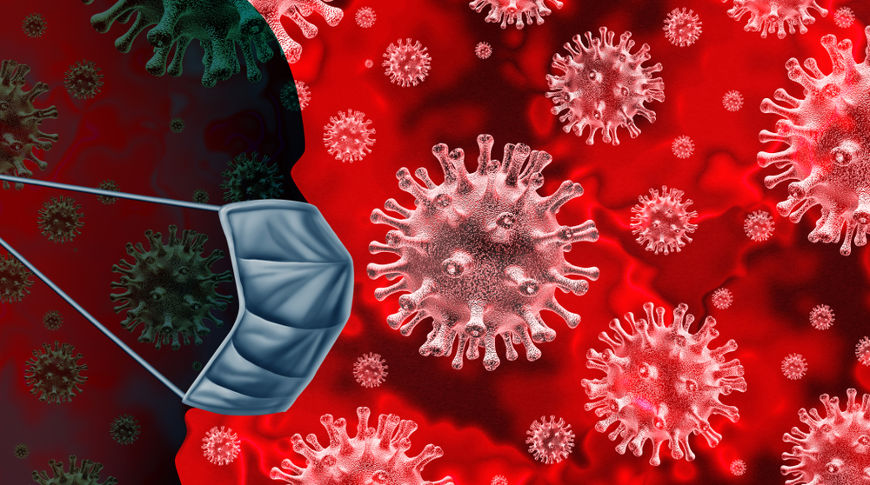In the awakening of the pandemic Coronavirus, the Asian Council of Science Editors has decided to postpone all of its regional/international events and conference for the following year 2020.
The health and safety of our members, colleagues, exhibitors, and speakers is paramount and we feel compelled to postpone our events to minimize the risk to our valued participants and partners. By making this decision in advance, we also hope to minimize any stress or inconvenience for our members and participants.
As an awareness campaign, we are here to support our prestigious members with qualitative information:
What is COVID-19?
Coronavirus is an elephant in the room because of its pandemic spread around the globe. According to the International Federation of Medical Students’ Association (IFMSA) and World Health Organization (WHO), Severe Acute Respiratory Syndrome Coronavirus (SARS-CoV-2) is responsible for causing an infectious disease known as COVID-19 to human beings. It is a new strain of the virus and it was first identified in Wuhan, China in December 2019.
Coronaviruses are considered zoonotic; transmitted between animals and humans. Coronaviruses are a family of viruses that are known for containing different strains of this virus. It is reported that severe diseases such as Middle East Respiratory Syndrome (MERS) and Severe Acute Respiratory Syndrome (SARS) were also caused by Coronaviruses.
What are the symptoms of COVID-19?
Early symptoms resemble flu or the common cold. The common symptoms include fever, shortness of breath, dry cough, sore throat, chills, headache and a feeling of unease while serious symptoms are pneumonia/bronchitis, acute respiratory distress syndrome, septic shock, metabolic acidosis, coagulation dysfunction, and dyspnea. The symptoms started to appear within 2-14 days.
How does Coronavirus spread?
It is an airborne virus and highly contagious. This virus spreads in a similar way to cold and flu. People catch COVID-19 from others who have the virus. The virus spreads mainly from person to person when an infected person coughs or sneezes, the other person who has nearby inhaled the respiratory droplets of an infected person. These droplets land on objects and surfaces around the person. Other people then catch COVID-19 by touching these objects or surfaces, then touching their eyes, nose or mouth.
How can we protect ourselves and others?
It’s been an alarming situation since the COVID-19 has spread across the globe. Protection and precautionary measures are sorely needed in order to protect ourselves from this virus and to prevent the further spread of this disease. The best way to avoid illness is to avoid being exposed to this virus. You can reduce your chances of being infected or spreading COVID-19 by taking some simple precautions which are as follow:
- Regularly wash your hands with an alcohol-based rub or wash them with soap. It will help to kill the viruses that may be on your hands.
- Use hand sanitizer that contains at least 60% alcohol.
- COVID-19 is a contagious disease, it is necessary to maintain social distance in order to avoid the spread of COVID-19 in your community. Maintain a distance of at least 1 meter between yourself and the person who is infected with a virus or having a cough or sneezing to avoid the liquid droplets.
- When you cough or sneeze, cover your mouth and nose with tissue paper. Then dispose of used tissue papers in the waste bin. After that, immediately wash your hands with soap and water for at least 20 seconds.
- Wear a mask when you are around other people, pets and before you enter health care. Mask N95 is recommended because of its dense filter which helps to prevent 95 % of particles sized 0.3 microns and below.
- Avoid sharing household items. You should not share dishes, drinking glasses, cups, eating utensils, towels, or bedding with other people or pets in your home.
- Disinfect areas with bodily fluids are needed.
- Seek medical attention if the illness is worsening.
- Stay home if you feel unwell. Patients with confirmed COVID-19 should remain under home isolation precautions.
- Avoid traveling in the current situation. There must quarantine camps on airports/borders in order to identify the people who are sick with COVID-19. There must be travel restrictions to combat this disease.
Conclusively, stay aware of the latest information on the COVID-19 outbreak, available on the WHO website and through your national and local public health authority. There is no vaccine or antiviral treatment to prevent COVID-19 yet. WHO, research institutions and private companies are working hard and making an effort to develop vaccines, medicines or specific antiviral treatment in order to prevent COVID-19. The crux of the matter is “Prevention is better than cure”. We should all play our part in order to limit the spread of this virus and to combat this disease by following precautionary measures.
The ACSE extends great concern toward its members and ambassadors and requests them to follow the instructions of WHO and their local government to stay safe and protect their loved ones and others by possible awareness campaigns.

COMMENTS